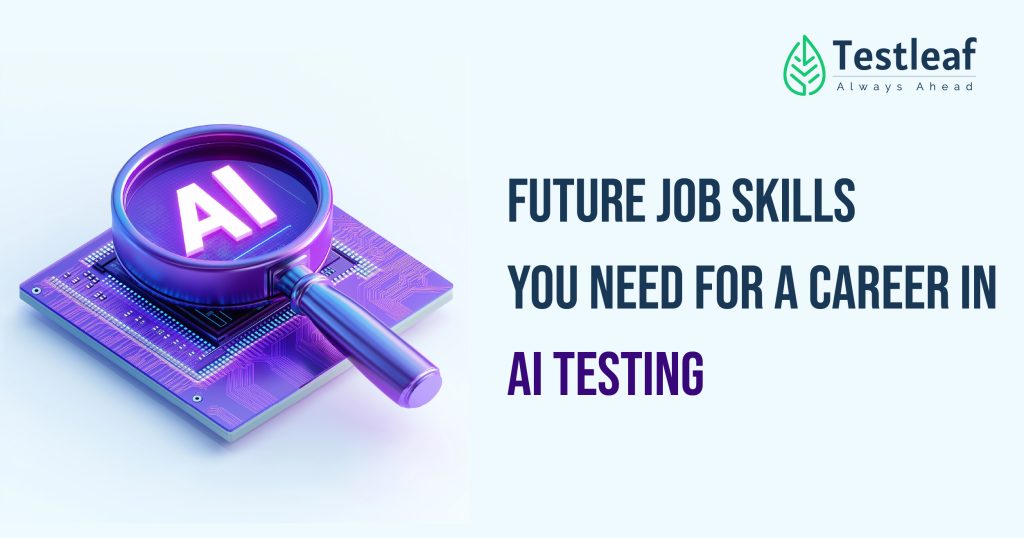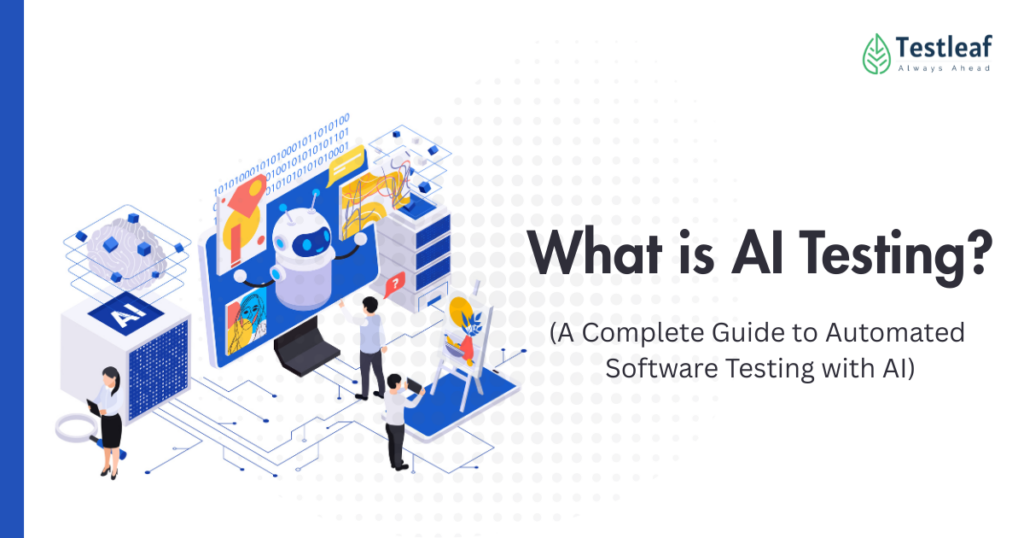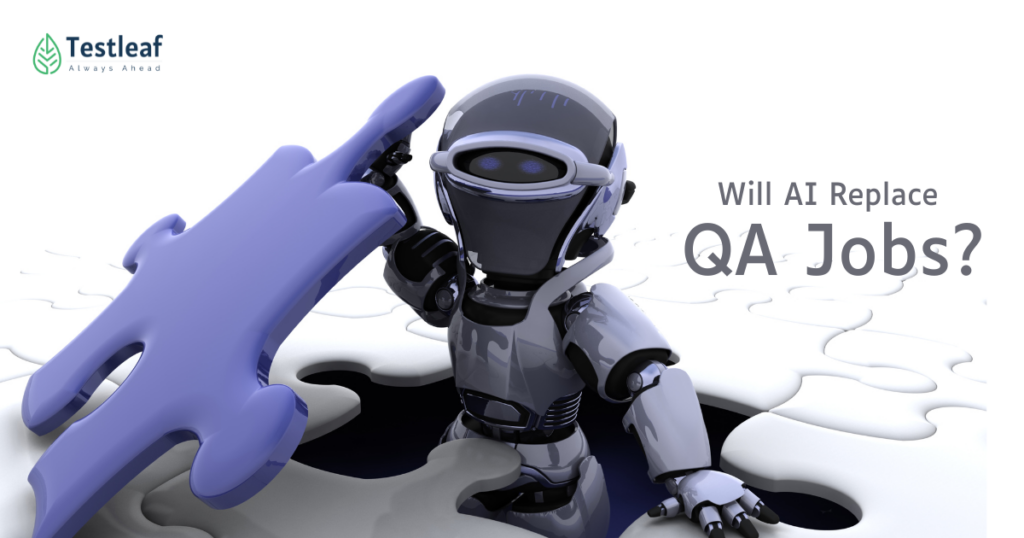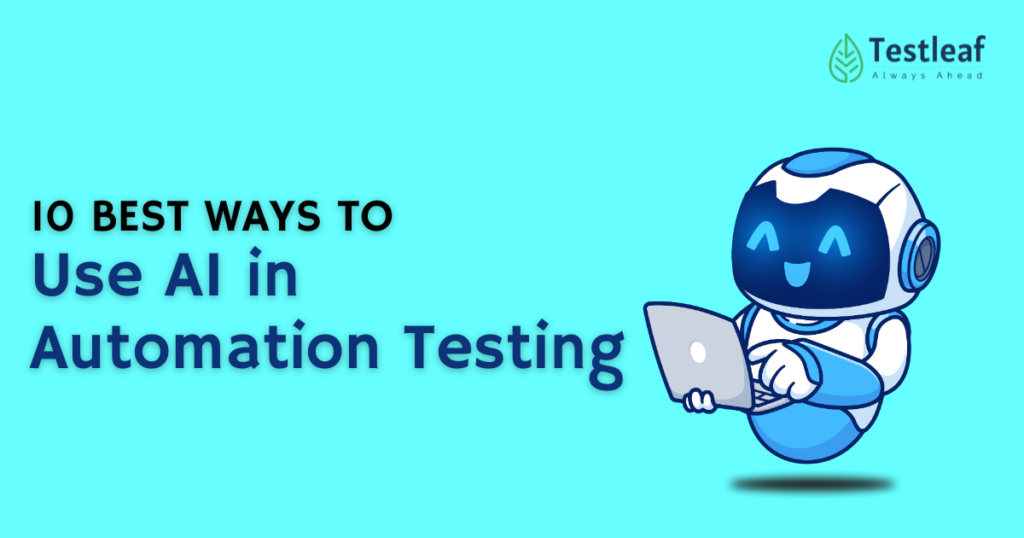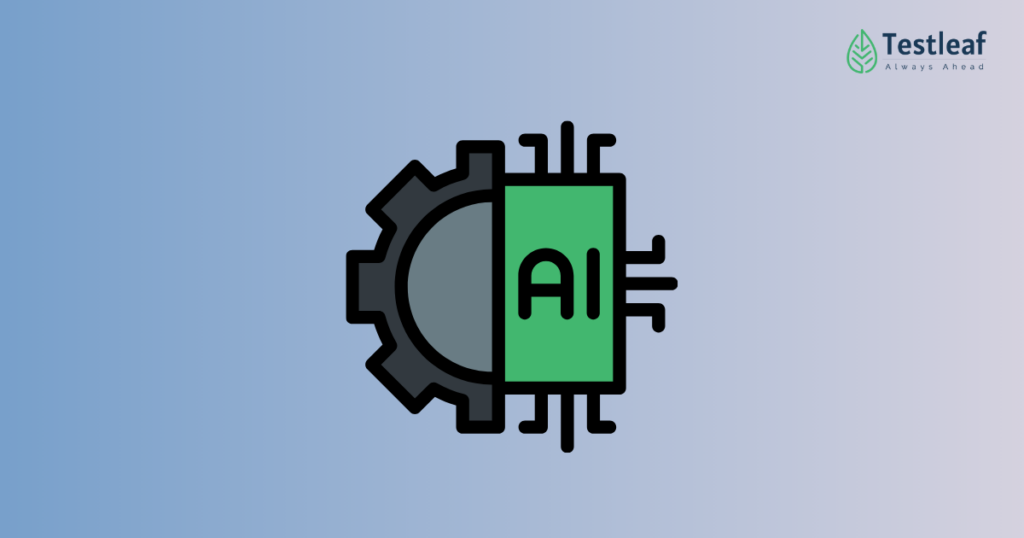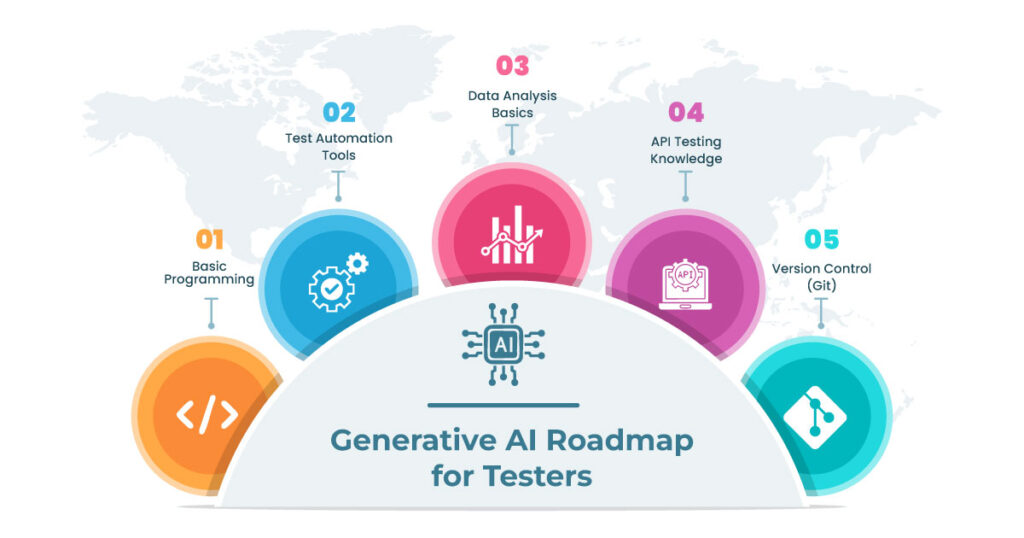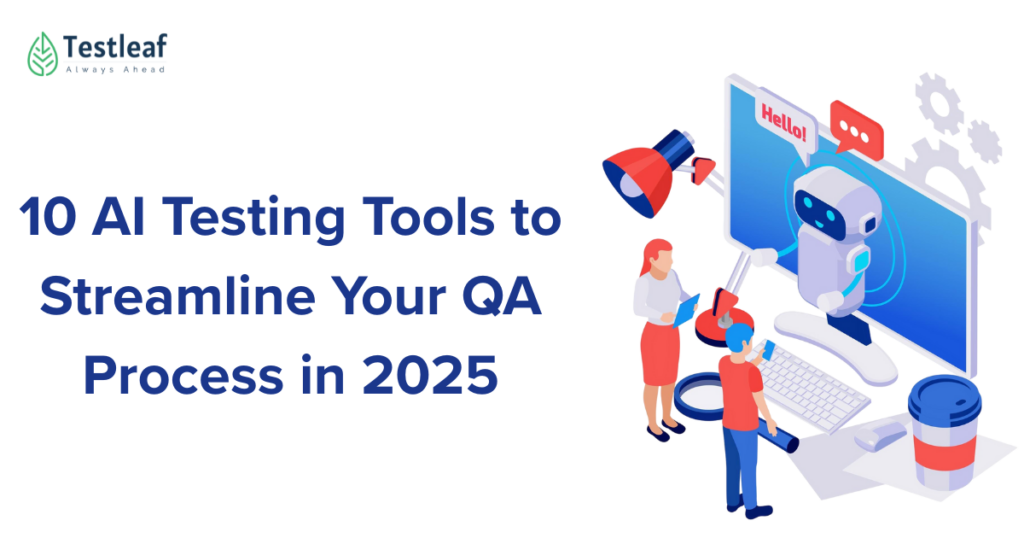Introduction
As software development continues to evolve, the traditional testing approach is no longer sufficient in the software testing realm. In the age of Artificial Intelligence, the role of QA professionals is changing intensely. It is essential to embrace AI testing and build the necessary skills to stay relevant in the evolving landscape. We are in a time where automation engineers and manual testers can upgrade their skill set, with AI in software testing. Let’s look at the top future job skills you’ll need for a successful career in AI test automation in 2025 and beyond.
What Is AI Testing?
Using AI in software testing enhances and automates various aspects of the testing process. This includes smart test creation, self-healing scripts, defect prediction, and visual validations. With AI testing, manual efforts are reduced, test coverage is broadened, and feedback is provided faster.
1. Understanding AI and Machine Learning Fundamentals
A basic understanding of AI is important to succeed in AI and software testing. Even though you don’t have to become a data scientist, you should be familiar with the core concepts.
Learn About:
- Machine learning (ML)
- Difference between supervised, unsupervised, and reinforcement learning
- Common algorithms (e.g., decision trees, clustering, regression)
Why it matters:
The use of AI-driven tools on these models to analyse application behaviour and optimise test cases. Understanding the fundamentals allows you to make informed decisions and interpret tool results.
2. Programming and Scripting Skills
Scripting remains essential even in intelligent automation. By knowing popular programming languages, you can customise tests and integrate AI-based tools effectively.
Recommended languages:
- Java – commonly used in Selenium and Appium environments.
- JavaScript/TypeScript – Essential for testing front-end code and Playwright based applications.
- Python – Widely used in AI development and supported by numerous automation tools.
It matters because being confident with coding simplifies the process of developing test logic, API interaction, or data manipulation.
3. Test Automation Framework Knowledge
To transition into AI testing automation, you must first master traditional automation tools and frameworks.
Key tools:
- Selenium, Appium, Playwright (optional but helpful)
- TestNG, JUnit, Cypress
- BDD frameworks like Cucumber
Why it matters:
Most AI testing tools build upon or integrate with these frameworks, so having foundational knowledge is essential.
Improve your responses with insights from Test Automation Framework Interview Questions.
4. Working with AI-Powered Testing Tools
AI testing tools are revolutionising QA. Being hands-on with these platforms gives you a competitive edge.
Top tools to explore:
- Testim – Self-healing scripts for AI-based UI testing
- Applitools – Visual AI for interface validation
- Mabl, Functionize, TestCraft – AI-first automation platforms
It is important because:
Proficiency in these tools demonstrates your readiness for modern QA roles where AI in software testing is the norm.
5. Data Analysis and Interpretation
AI testing generates large volumes of test data. The ability to analyse test results, spot trends, and use AI insights for decision-making is a high-value skill.
Learn:
- How to read logs, dashboards, and error traces
- Basics of data visualization tools (e.g., Excel, Power BI)
- Understanding AI-generated test recommendations
You’ll be expected to work closely with developers and product teams to deliver fast, actionable insights.
6. Soft Skills: Problem Solving & Collaboration
AI testing roles often require cross-functional collaboration, working with developers, data engineers, and business analysts.
Essential soft skills:
- Analytical thinking
- Communication and reporting
- Readiness to adapt to new tools and workflows
Importance:
AI-powered environments evolve quickly; therefore, strong soft skills enhance your effectiveness as a team player and leader in dynamic teams.
7. Cloud and DevOps Awareness
Modern testing occurs in CI/CD pipelines hosted in the cloud. Understanding cloud-based testing and DevOps integration is a vital skill.
Learn:
- Use CI/CD tools such as Jenkins, GitHub Actions, and GitLab to integrate tests.
- Explore cloud platforms for test execution like AWS, Azure, and GCP.
- Familiarise yourself with Docker and containerization basics.
AI testing tools are often hosted in the cloud and must align with fast-moving DevOps pipelines.
8. Staying Current with AI Testing Trends
AI in software testing is still evolving; hence, staying current with the latest research, tools, and case studies will help you adapt and lead.
How to stay updated:
- Follow industry blogs and webinars.
- Participate in QA communities and AI testing forums.
- Enrol in a certification or AI testing course.
Note:
AI Testing Career is Ideal for:
Manual Testers – Looking to transition into automation and AI-powered testing.
Automation Engineers – Wanting to add AI-based tools to their skillset.
Developers – Interested in improving code quality and test coverage using AI.
QA Leads/Managers – in agile/DevOps teams looking for ways to implement smart testing strategies.
When it comes to Fresh Graduates with basic knowledge of programming and software testing fundamentals, they can start their career in Testing.
Conclusion
AI is transforming how software is developed and tested, so QA professionals must also adapt as a result. Future success depends on a solid grasp of AI testing, along with traditional automation, programming, data interpretation, and soft skills.
Businesses will seek professionals with an understanding of the synergy between AI and software testing, those who are critical thinkers, automaters, and fast learners in 2025 and beyond.
Start learning AI testing automation with real-world tools and become a future-ready QA engineer.
We Also Provide Training In:
- Advanced Selenium Training
- Playwright Training
- Gen AI Training
- AWS Training
- REST API Training
- Full Stack Training
- Appium Training
- DevOps Training
- JMeter Performance Training
Author’s Bio:

As CEO of TestLeaf, I’m dedicated to transforming software testing by empowering individuals with real-world skills and advanced technology. With 24+ years in software engineering, I lead our mission to shape local talent into global software professionals. Join us in redefining the future of test engineering and making a lasting impact in the tech world.
Babu Manickam
CEO – Testleaf
